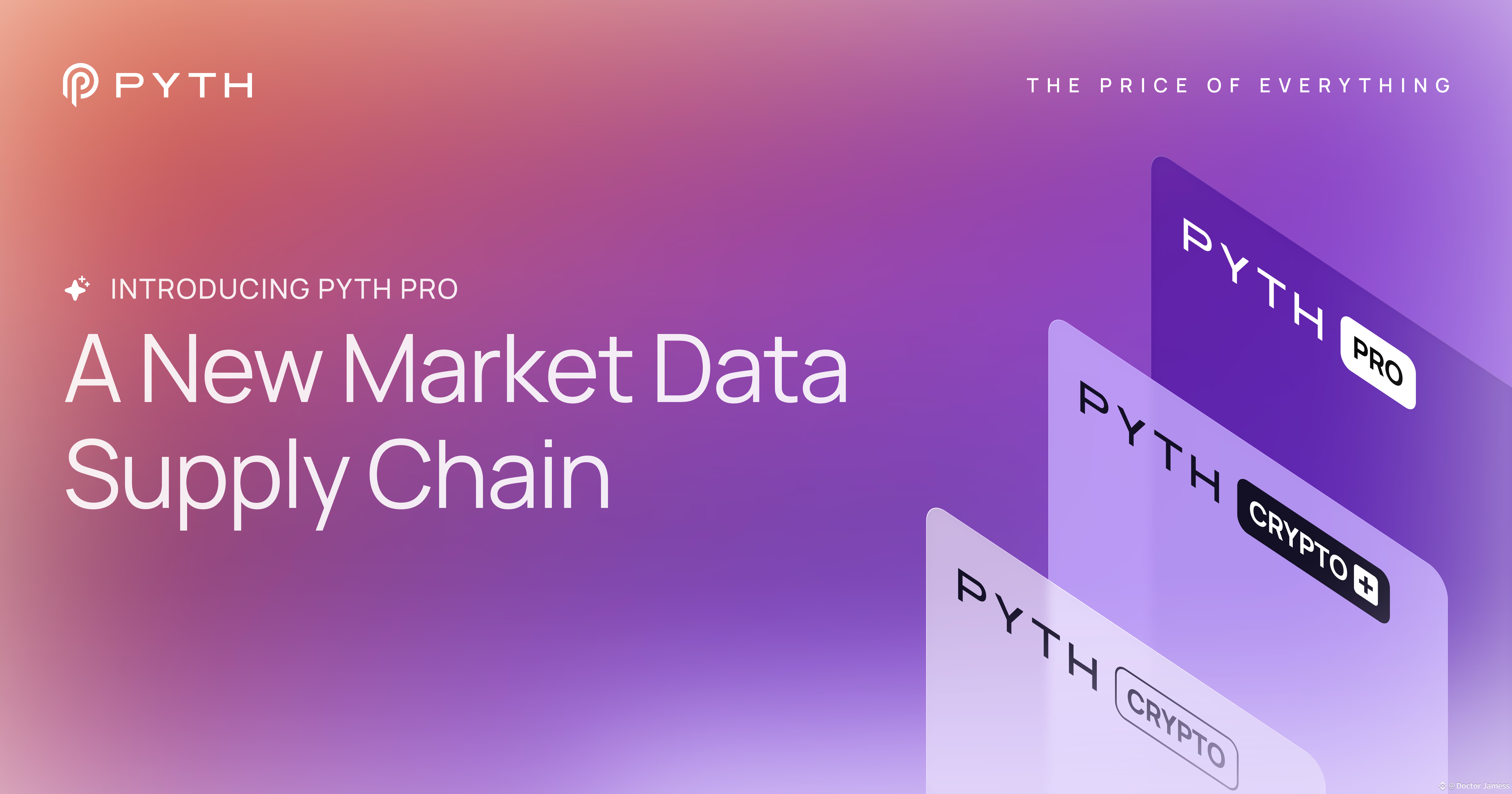Pyth Network The Evolution of Decentralized Data Infrastructure
The decentralized finance landscape has rapidly expanded in recent years, but one recurring challenge continues to shape its progress: the reliability, speed, and cost of market data delivered on-chain. Pyth Network emerges not only as a decentralized financial oracle but as a new-age data infrastructure built to support the ever-growing demands of both decentralized finance and the broader financial industry. Unlike traditional oracles that depend on third-party aggregators, Pyth Network introduces a first-party model where data is delivered directly from the original sources such as trading firms, exchanges, and market participants. This eliminates dependency on intermediaries, making data delivery more transparent, verifiable, and efficient.
Shifting Paradigms in Financial Data
Financial data has long been controlled by a handful of legacy providers that monetize access through costly subscriptions and limited visibility. This centralized structure creates inefficiencies, locking smaller participants out of critical information and reinforcing barriers to entry. Pyth Network is redefining this paradigm by enabling contributors to supply price feeds and other data directly to the blockchain. By leveraging blockchain consensus and first-party contribution, it introduces a global commons for financial information that is secure, affordable, and instantly accessible.
Expanding Beyond DeFi
Initially known for its strong focus on decentralized finance applications such as lending platforms, derivatives, and stablecoins, Pyth Network is now moving toward a much larger opportunity: the fifty-billion-dollar global market data industry. Real-world financial institutions, funds, and asset managers are beginning to realize the potential of blockchain-native oracles. Pyth Network’s roadmap positions it as a bridge between traditional finance and decentralized ecosystems, ensuring that both sides can benefit from the same infrastructure.
Subscription-Based Institutional Data
One of the most anticipated innovations from Pyth Network is its subscription product tailored for institutions. Instead of relying on legacy vendors, institutional clients will be able to access verifiable, real-time blockchain-native data streams at competitive costs. This approach not only reduces expenditure but also ensures transparency and immutability in how data is generated and distributed. For asset managers, hedge funds, and enterprises, this represents a fundamental shift in the way financial intelligence can be consumed and validated.
Utility and Governance of the PYTH Token
At the core of this ecosystem lies the PYTH token. It is not merely a medium of exchange but a governance and incentive mechanism that ensures sustainability. Contributors are rewarded for supplying accurate, timely data, while the decentralized autonomous organization oversees distribution, governance, and protocol evolution. This alignment of incentives strengthens the reliability of data feeds while building community-driven resilience. Furthermore, token utility extends to revenue allocation, enabling a more equitable model where contributors and participants alike benefit from the network’s growth.
Addressing Market Inefficiencies
In traditional systems, latency, limited transparency, and high costs often restrict innovation. Pyth Network addresses these inefficiencies through on-chain publishing mechanisms that support real-time updates across multiple ecosystems. Developers building in decentralized finance gain access to accurate price feeds, ensuring more secure lending, borrowing, and derivatives settlement. Traders benefit from minimized slippage, while protocols enhance risk management strategies. This improvement in accuracy and accessibility creates compounding benefits across the broader Web3 economy.
The Road Ahead for Pyth Network
The future of financial data is not limited to cryptocurrencies or DeFi protocols alone. As markets globalize and digital assets increasingly intersect with real-world securities, commodities, and currencies, the need for decentralized oracles like Pyth becomes universal. From tokenized real estate to cross-border payments, every innovation requires trusted data to function effectively. Pyth Network is actively preparing for this evolution by scaling its infrastructure, expanding integrations across multiple blockchains, and broadening its pool of contributors.

Methodological Approach of Pyth Network
The strength of Pyth lies in its robust methodology for ensuring accuracy and decentralization. Instead of relying on a single provider, it aggregates multiple first-party data sources. These providers include top-tier exchanges, market makers, and trading firms who push real-time prices on-chain. The network then combines these feeds through a decentralized consensus model, ensuring that no single actor can manipulate outcomes. Verification mechanisms are integrated to detect anomalies, providing resilience against outliers or malicious actors. By structuring incentives through PYTH tokens, contributors are rewarded for high-quality inputs, while penalties discourage dishonesty. This methodology underpins trust in Pyth’s data and ensures it can scale effectively as adoption grows.
Integration with Multi-Chain Ecosystems
Interoperability is a defining feature of Pyth’s evolution. Recognizing that DeFi spans multiple chains, Pyth Network deploys universal connectors that allow its data to be consumed across leading ecosystems such as Solana, Ethereum, and beyond. This not only expands its reach but also ensures developers can tap into Pyth’s feeds regardless of their chosen chain. As rollups and modular blockchain designs become more popular, this cross-chain flexibility will be a defining advantage.
Institutional Adoption and the Future of Market Data
As more institutions enter the blockchain space, data integrity becomes a critical requirement. Traditional financial firms cannot risk using unverified or slow data. Pyth Network’s design meets these needs by combining institutional-grade accuracy with blockchain-native infrastructure. By embedding security, immutability, and community-driven governance, it delivers a product that is both familiar and transformative for institutional users.
Conclusion
Pyth Network is no longer just a tool for decentralized finance—it is evolving into a global backbone for secure, transparent, and first-party financial data delivery. With its expansion into institutional products, growing token utility, and scalable methodology, it is uniquely positioned to redefine the economics of market intelligence. As the $50 billion market data industry faces disruption, Pyth stands at the forefront, building a more inclusive, efficient, and future-ready system for both decentralized and traditional finance.
